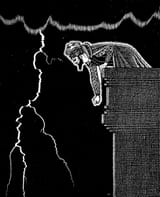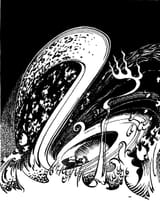Anonymous
7/17/2025, 6:09:37 PM No.24558633
>I read the works of E.R.J Eddison, long after they appeared; and I once met him. I heard him in Mr. Lewis's room in Magdalen College read aloud some parts of his own works – from the Mistress of Mistresses, as far as I remember. He did it extremely well. I read his works with great enjoyment for their sheer literary merit. My opinion of them is almost the same as that expressed by Mr. Lewis on p. 104 of the Essays presented to Charles Williams. Except that I disliked his characters (always excepting the Lord Gro) and despised what he appeared to admire more intensely than Mr. Lewis at any rate saw fit to say of himself. Eddison thought what I admire 'soft' (his word: one of complete condemnation, I gathered); I thought that, corrupted by an evil and indeed silly 'philosophy', he was coming to admire, more and more, arrogance and cruelty. Incidentally, I thought his nomenclature slipshod and often inept. In spite of all of which, I still think of him as the greatest and most convincing writer of 'invented worlds' that I have read. But he was certainly not an 'influence'.
Why did Eddison make Tolkien seethe so greatly?
Why did Eddison make Tolkien seethe so greatly?

